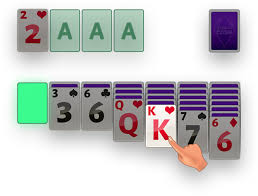EXPANDING YOUR VOCABULARY: OPPOSITE ADJECTIVES IN ENGLISH FOR DESCRIBING PEOPLE AND THINGS
Language is a powerful tool that allows us to express ourselves and communicate with others. One essential aspect of language is vocabulary, which encompasses a wide range of words that we use to describe people, things, and situations. In English, adjectives are fundamental in providing vivid and precise descriptions. Interestingly, opposite adjectives play a crucial role in expanding our vocabulary, as they provide contrasting meanings to describe people and things. In this article, we will learn and Entenda os adjetivos opostos em inglês that can be used to describe people and things:
- Positive and negative opposites: One common type of opposite adjectives in English are positive and negative opposites. For example, we can describe someone as “generous” or “stingy,” “brave” or “cowardly,” “intelligent” or “ignorant.” These opposite adjectives allow us to express contrasting qualities of people or things, providing a nuanced and balanced perspective in our descriptions.
- Describing physical appearance: Opposite adjectives are also useful in describing physical appearance. For instance, we can use words like “tall” or “short,” “thin” or “plump,” “old” or “young,” “beautiful” or “ugly.” These opposite adjectives enable us to paint a vivid picture of a person’s physical features, helping us to create a clear mental image in the mind of our listeners or readers.
- Emotions and feelings: Opposite adjectives can also be used to describe emotions and feelings. We can use words like “happy” or “sad,” “excited” or “bored,” “confident” or “insecure,” “content” or “discontent.” These opposite adjectives allow us to express the complex and diverse range of emotions that humans experience, adding depth and richness to our descriptions of people or situations.
- Evaluating actions and behaviors: Opposite adjectives are useful in evaluating actions and behaviors. For instance, we can use words like “honest” or “dishonest,” “loyal” or “treacherous,” “polite” or “rude,” “helpful” or “unhelpful.” These opposite adjectives allow us to make judgments about the conduct of people or things, providing insight and perspective in our descriptions.
In conclusion, expanding our vocabulary with opposite adjectives can greatly enhance our communication skills. These words provide us with a wide range of options to accurately and precisely describe people and things, helping us to convey our thoughts and ideas with precision.
By incorporating opposite adjectives into our language repertoire, we can elevate our communication skills and convey our thoughts and ideas with precision and clarity. So, let’s continue to explore and utilize the rich world of opposite adjectives to enrich our vocabulary and improve our ability to express ourselves in English.





